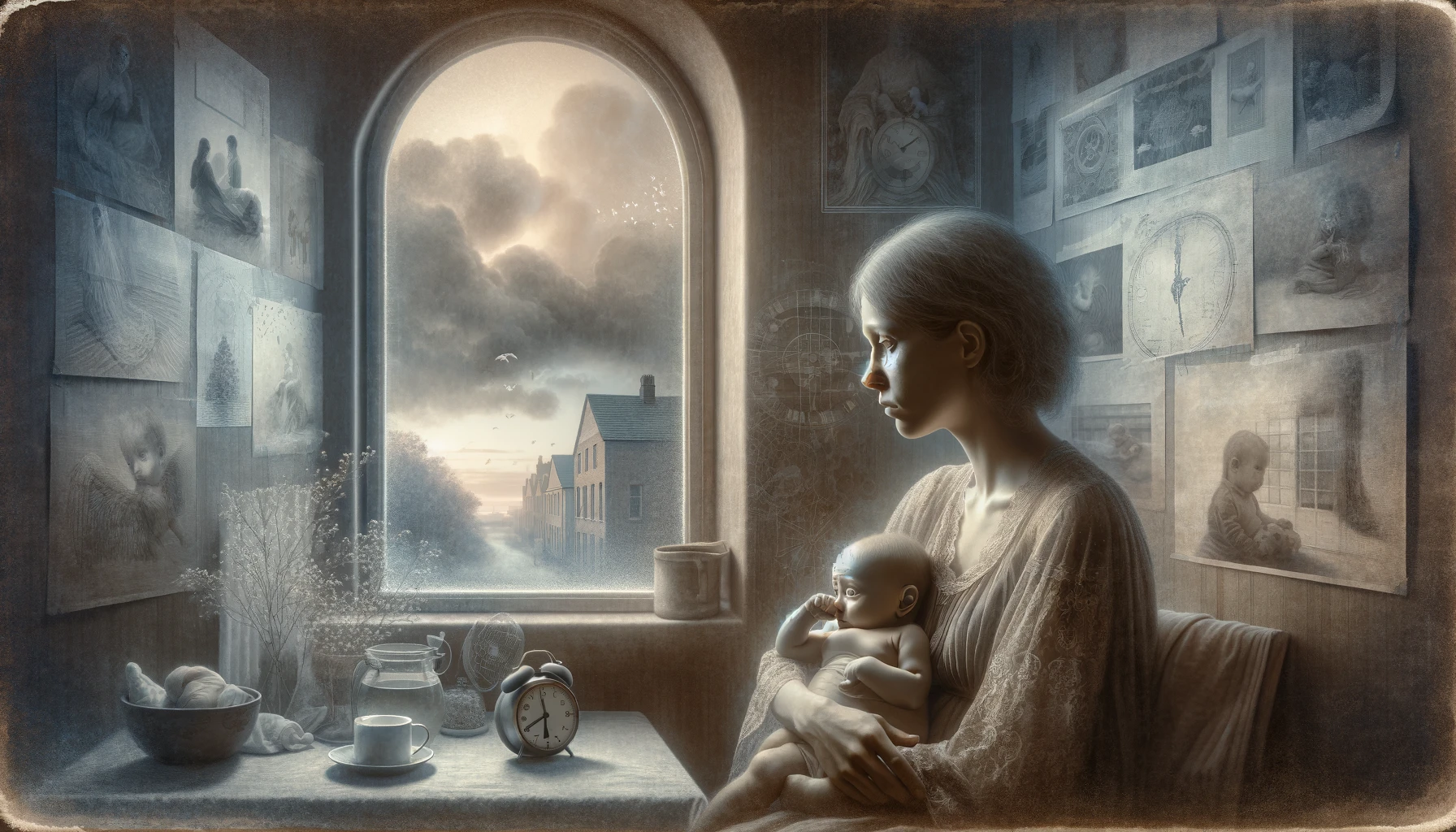
Depression After Birth
Postpartum depression (PPD) is a significant mental health issue that affects women following childbirth. This condition goes beyond the common “baby blues,” presenting more severe symptoms like deep sadness, severe mood swings, exhaustion, and a feeling of detachment from the baby. PPD can emerge due to a mix of physical changes—such as hormonal fluctuations—and emotional factors, including the stress and anxiety of caring for a newborn.
The adjustment to motherhood and the lack of sleep also play critical roles. Recognizing PPD is vital, as it can impact both the mother’s well-being and her ability to care for her child. Early intervention and support are key to managing and recovering from this condition.
Behavioral Indicators of Depression After Childbirth
Depression following childbirth can manifest in various behavioral changes. These indicators are crucial for identifying the condition early and seeking appropriate help. Key behavioral indicators include:
- Reduced Interest in Activities: A noticeable decline in interest or pleasure in activities that were previously enjoyed.
- Social Withdrawal: Avoiding social interactions, including distancing from friends, family, and social events.
- Appetite Changes: Significant changes in eating habits, which may result in noticeable weight loss or gain.
- Sleep Disturbances: Experiencing insomnia or oversleeping, regardless of the baby’s sleep schedule.
- Persistent Fatigue: Feeling constantly tired or fatigued, even without significant physical exertion.
- Neglect of Personal Care: Showing less concern for personal hygiene and grooming.
- Difficulty Bonding with Baby: Struggling to form a strong emotional connection with the newborn.
- Decreased Attention to Baby’s Needs: Showing less interest in or neglecting the baby’s care and needs.
- Increased Irritability or Anger: Exhibiting heightened irritability, frustration, or anger over seemingly minor issues.
- Concentration Problems: Difficulty in focusing, making decisions, or remembering simple tasks.
- Frequent Crying: Experiencing regular and unexplained episodes of crying or emotional breakdowns.
Managing Depression After Childbirth
Dealing with depression following childbirth involves a combination of self-care, support, and professional treatment. The following strategies can be helpful in managing and overcoming postpartum depression:
- Seek Professional Help: Consult a healthcare provider for a proper diagnosis and treatment plan, which may include therapy and medication.
- Build a Support Network: Lean on family, friends, or support groups for emotional support and practical help with childcare.
- Rest and Sleep: Prioritize sleep and rest whenever possible, as fatigue can exacerbate symptoms of depression.
- Eat a Balanced Diet: Maintain a healthy diet to support physical and mental well-being.
- Exercise Regularly: Engage in physical activity, as exercise can boost mood and energy levels.
- Set Realistic Expectations: Acknowledge that it’s okay not to be the “perfect” parent and that it’s normal to feel overwhelmed.
- Practice Stress Reduction Techniques: Techniques such as meditation, yoga, or deep-breathing exercises can help manage stress levels.
- Bond with Your Baby: Spend quality time bonding with your baby, which can also improve your mood and emotional well-being.
- Limit Isolation: Try to participate in social activities, even if it’s just a short walk or a virtual chat with a friend.
- Focus on Small Achievements: Celebrate small victories and accomplishments each day to build a positive mindset.
- Avoid Major Life Changes: If possible, avoid making significant life changes during this period to reduce additional stress.
Remember, seeking help is a sign of strength, not weakness. Early intervention can significantly improve recovery from postpartum depression.
FAQ
What is postpartum depression?
It’s a mood disorder that can affect women after childbirth, characterized by feelings of extreme sadness, anxiety, and exhaustion.
How is postpartum depression different from the “baby blues”?
While “baby blues” are common and typically resolve within two weeks, postpartum depression is more severe and persistent, often requiring professional treatment.
What causes postpartum depression?
It’s believed to be caused by a combination of hormonal changes, psychological adjustment to motherhood, and physical exhaustion.
Can postpartum depression affect new fathers?
Yes, new fathers can also experience postpartum depression, though it’s more common in mothers.
What are the symptoms of postpartum depression?
Symptoms include severe mood swings, sadness, withdrawal from family and friends, loss of interest in activities, and feelings of worthlessness or guilt.
How is postpartum depression diagnosed?
It’s diagnosed based on a woman’s symptoms and an evaluation by a healthcare provider, often including a psychological assessment.
Can postpartum depression be treated?
Yes, treatment options include counseling, support groups, and medications like antidepressants.
How long does postpartum depression last?
The duration varies; some women recover in a few months, while others may experience symptoms for longer.
Can postpartum depression affect the baby?
While the condition doesn’t directly affect the baby, it can impact a mother’s ability to connect with and care for her child.
What can be done to prevent postpartum depression?
Preventative measures include preparing for childbirth, seeking support from family and friends, and discussing any concerns with a healthcare provider.